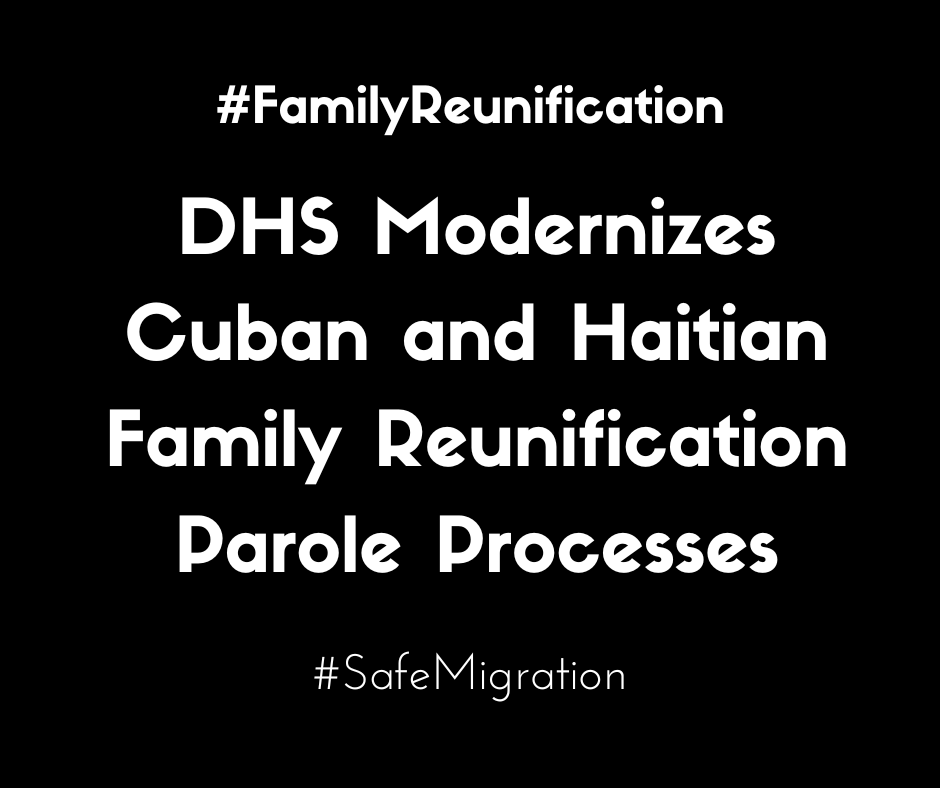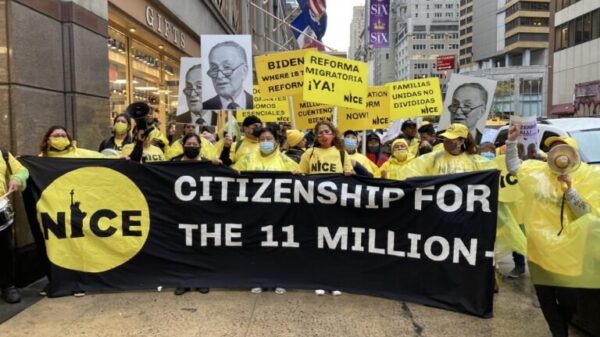In a move aimed at enhancing efficiency and accessibility, the Department of Homeland Security (DHS) has unveiled a significant modernization of the Cuban and Haitian Family Reunification Parole (FRP) processes. The transformation, as announced in Federal Register notices, stems from substantial input received from stakeholders involved in these crucial programs. Through these updates, applicants will be able to complete a majority of the FRP procedure via a secure online platform, effectively eradicating the burdensome aspects of travel, time-consuming paperwork, and administrative hurdles, thereby expanding the scope of participation. It’s important to note that the process remains accessible exclusively on an invitation-only basis.
The Cuban Family Reunification Parole (CFRP) and Haitian Family Reunification Parole (HFRP) programs have at their core the promotion of family unity. These updates were initially previewed as part of comprehensive measures unveiled in April by both DHS and the Department of State. This initiative aligns with their commitment under the Los Angeles Declaration on Migration and Protection.
Secretary of Homeland Security Alejandro N. Mayorkas emphasized the importance of establishing lawful pathways combined with robust enforcement to curtail irregular migration to the United States, thereby thwarting the risky involvement of migrants with human smugglers. Mayorkas commended the modernization of the family reunification parole processes, praising their ability to strengthen the integrity of vetting and screening standards. He underlined that these updates respond to invaluable feedback from stakeholders within the Cuban and Haitian communities, underscoring a commitment to ensuring meaningful access in line with core values, while concurrently benefiting potential beneficiaries.
The modernized processes, effective from August 11, 2023, will predominantly unfold online. Notably, this will exclude the completion of a panel physician examination abroad and the in-person parole determination, conducted upon air arrival at a designated U.S. Port of Entry. An essential change is that eligible beneficiaries are no longer required to be physically present in Cuba or Haiti; they must only be outside the United States.
The modernization builds on the technological progress that has transpired since the inception of the CFRP in 2007 and the HFRP in 2014. By leveraging these technological advancements, DHS expects to enhance operational efficiencies. Identity verification and eligibility assessment will continue to be conducted on an individual basis, complemented by a thorough and layered security vetting process.
Both the CFRP and HFRP processes are initiated by the Department of State’s National Visa Center. An invitation is extended to the U.S. citizen or lawful permanent resident family member who has had their Form I-130, Petition for Alien Relative, approved on behalf of a Cuban or Haitian beneficiary. Subsequently, the petitioner can initiate the FRP process by submitting Form I-134A, an Online Request to be a Supporter, and Declaration of Financial Support. This application covers the principal beneficiary and any derivative beneficiary’s spouse and children, all of whom seek advance travel authorization and parole.
To streamline the process further, USCIS will issue notifications to CFRP petitioners whose pending Form I-131, Application for Travel Document, is awaiting an interview for the principal beneficiary in Havana. Furthermore, DHS is expanding the accessibility of the HFRP process by opening it up to all approved Haitian principal beneficiaries, irrespective of when the USCIS approved their Form I-130. This broadened eligibility eliminates the previous limitation tied to approvals issued on or before December 18, 2014.
DHS remains steadfast in its commitment to reuniting families through the CFRP and HFRP processes. The ultimate goal is to facilitate a secure and orderly entry for eligible Cuban and Haitian nationals, along with their spouse and children, without resorting to perilous journeys across the Southwest Border or through maritime routes. This strategy is in alignment with U.S. national interests and foreign policy priorities, aiming to expand lawful pathways and discourage irregular migration.
For comprehensive information on the application process and eligibility criteria, the Federal Register notices for both Cuba and Haiti offer detailed guidance.
#DHS #FamilyReunification #Cuban #Haitian #Modernization #OnlineProcess #SecurePlatform #Immigration #USVisa #LegalPathways #USForeignPolicy #AccessToUS #StreamlinedProcess #Beneficiaries #USCIS #NationalVisaCenter #VettingStandards #SafeMigration #USBorders #EfficientProcess #USImmigration #LawfulEntry











